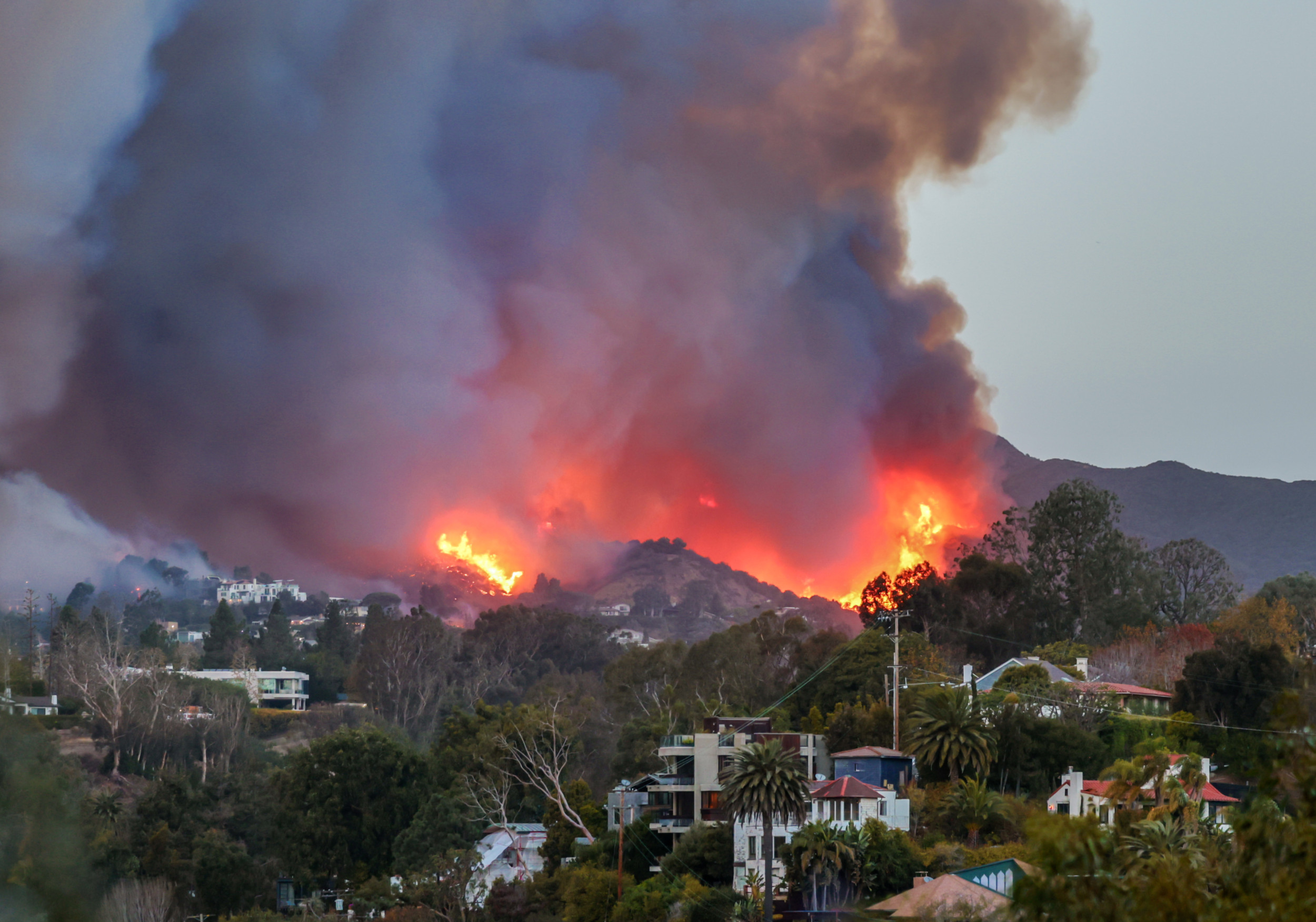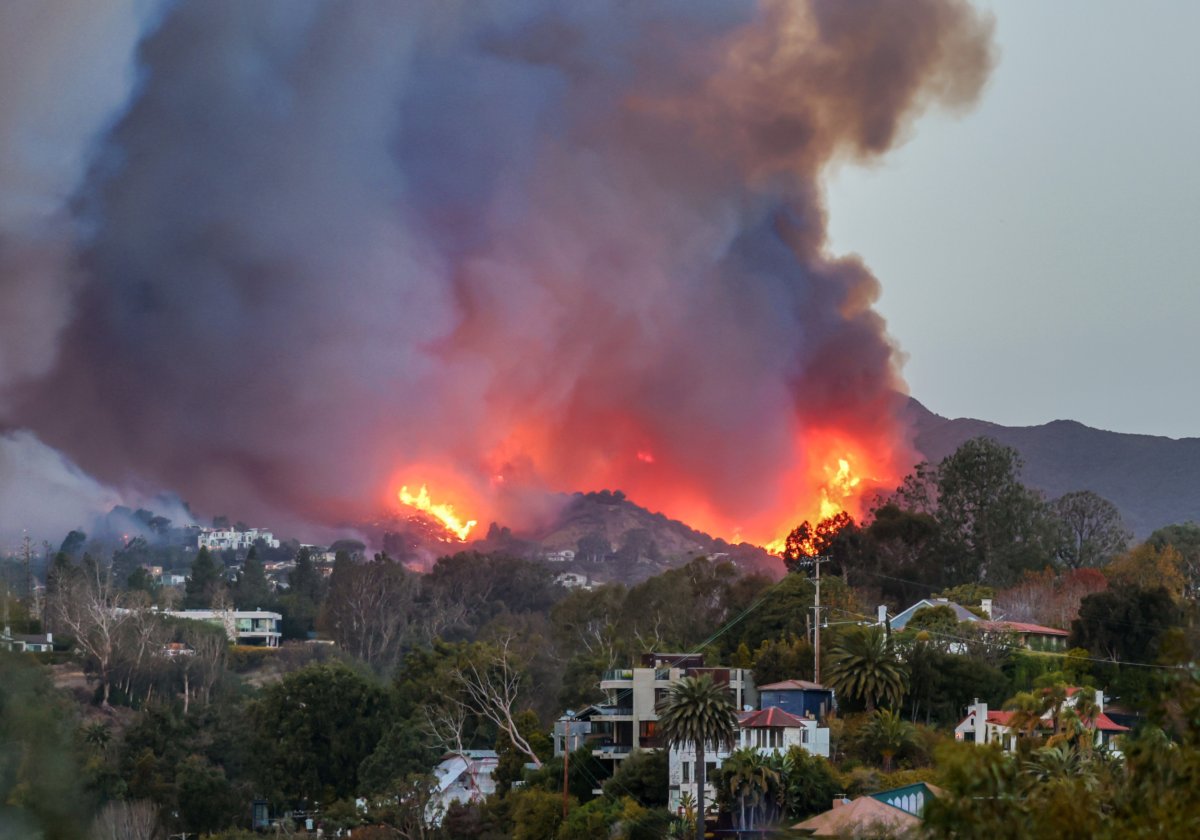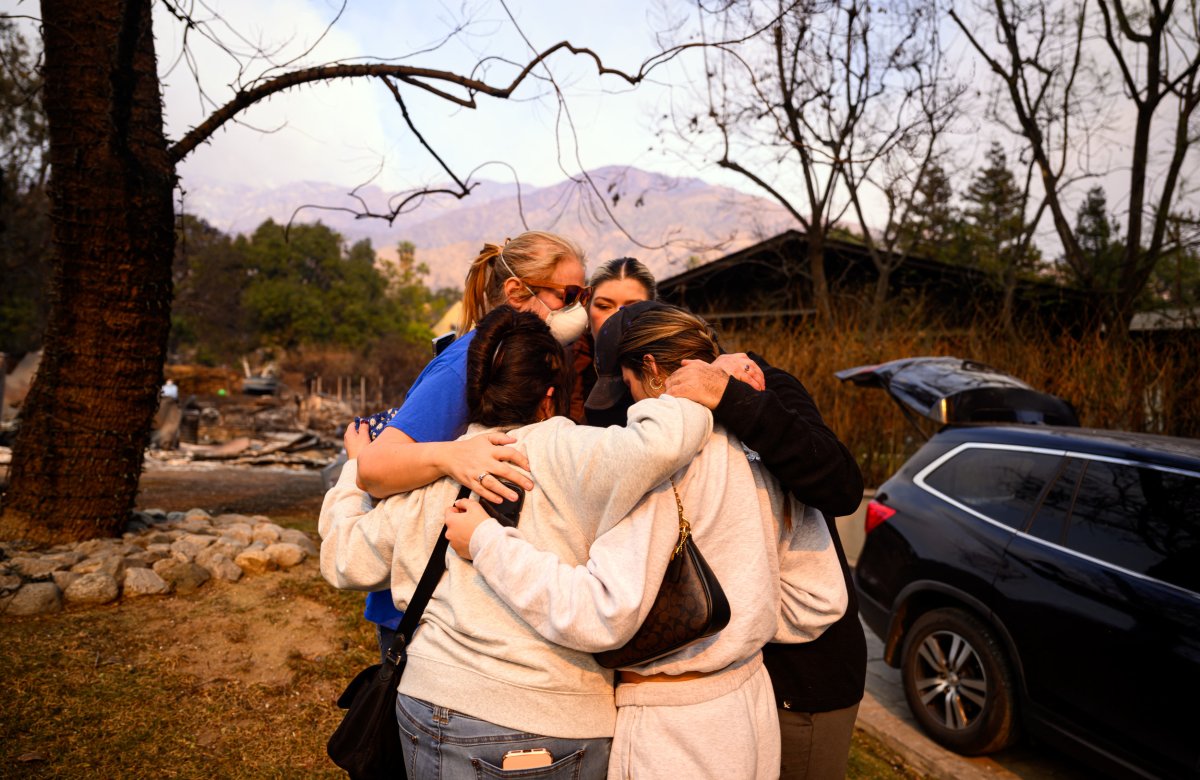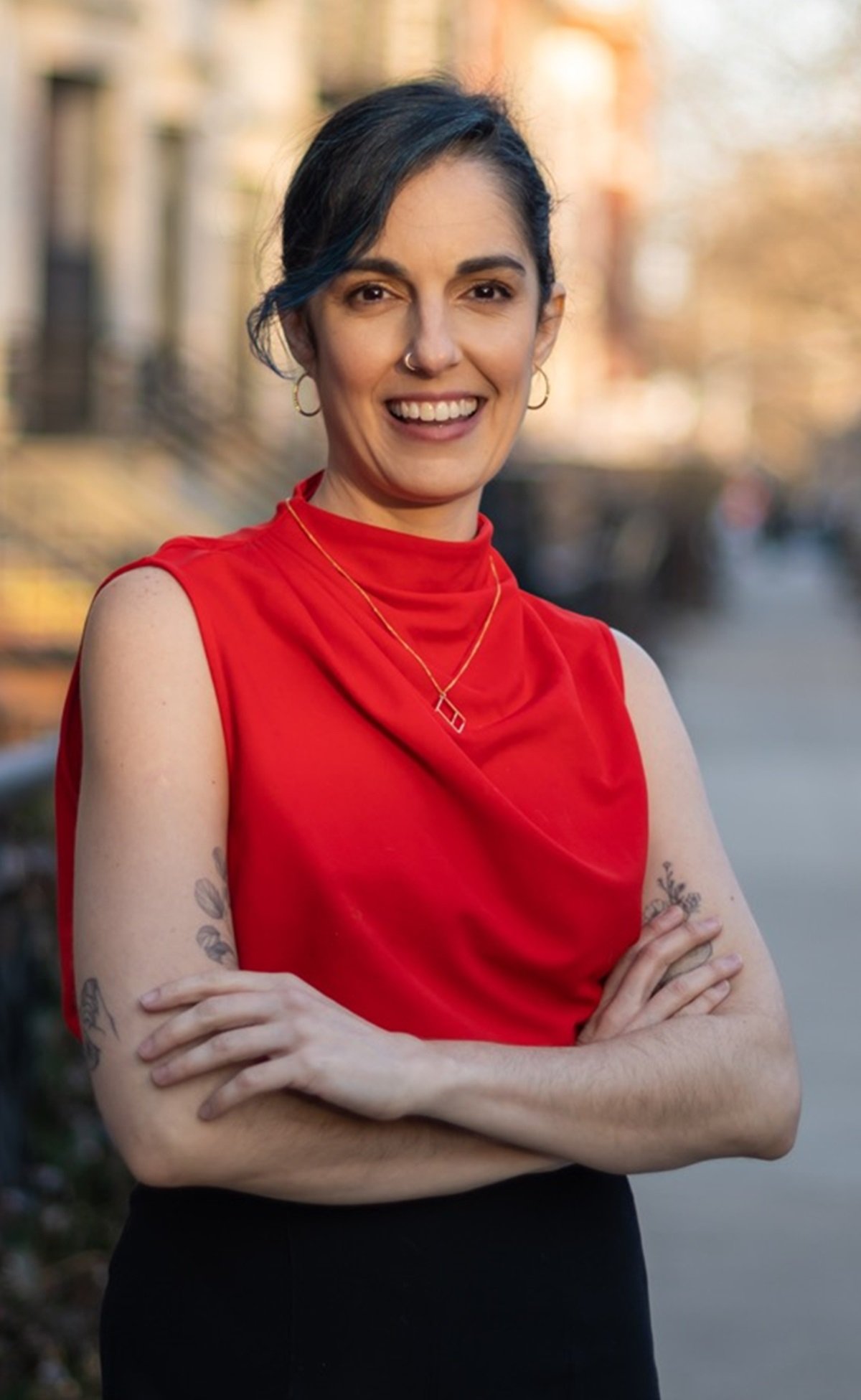
Life may never be the same for Los Angeles residents, with many losing their homes, belongings, and even family members. Hearts are bleeding across the nation as Californians endure a real-life nightmare.
During such a devastating time, many wonder how to support those affected. Newsweek reached out to Claudia Giolitti-Wright, a licensed psychotherapist, to learn what not to do when trying to help.
“When something terrible happens, people often try to look on the bright side or point out that someone else has it worse. Unfortunately, this approach isn’t helpful—especially when lives have been completely turned upside down,” Giolitti-Wright explained.
With four major wildfires currently raging across Los Angeles County, claiming at least 10 lives, displacing tens of thousands of residents, and leaving entire communities in ruins, finding the right words to comfort those affected can be incredibly challenging.

Tiffany Rose / Contributor/Getty Images News
Recognizing the emotional weight of such a crisis, Giolitti-Wright has shared key advice to help people offer meaningful support without unintentionally adding to the pain.
She told Newsweek: “The general tone and approach to keep in mind when thinking of things to say is to avoid going into fixer or saver mode, which is usually the first reaction, but it causes harm rather than a supportive effect.
“People going through a traumatic event don’t want to be fixed or saved, they want to be seen, heard, and validated.”
What Not to Say to Someone Affected by the L.A. Wildfires

JOSH EDELSON / Contributor/AFP
The owner of an empowering group private practice in New York City, called Psychotherapy for Young Women, has shared these five tips on what not to say:
- Don’t give unsolicited advice
- Don’t talk about your own emotions
- Don’t try to fix the problem
- Don’t try to show them the “bright side” of the situation
- Don’t go into your own personal stories or experiences when trying to show support
Instead, Giolitti-Wright, who has 14 years of experience, urges people to acknowledge their pain by creating a safe space for them to speak about their feelings.

By Mariana Soto Photography
She told Newsweek: “By offering compassionate support that doesn’t intend to ‘fix’ others’ pain but instead prioritizes them feeling seen, heard, and validated, we can help those affected by natural disasters navigate their journey toward recovery and healing.
“Small acts of kindness, patience, validation, and understanding can make an immense difference during these challenging times.”
Yesterday, Melissa Urban, a boundary expert and author, shared an Instagram post on her account @melissau, dedicated to navigating conversations during this challenging time.
An extract from the caption said: “When I was doing research for The Book of Boundaries, I heard a lot of insensitive, callous, or downright cruel things said in an attempt to “comfort” someone. Even if your intentions are good, the impact of these statements cause harm to someone already living their darkest days.”
How to help someone who has been in the L.A. wildfires
- Prioritize Listening Over Fixing—”Acknowledge their pain by creating a safe space for them to share their feelings without fear of judgment. Use phrases like, ‘I’m here for you’ or ‘It’s okay to feel this way’ to validate their emotions. Avoid offering quick fixes or minimizing their experience. Instead, let them lead the conversation about their needs and feelings.”
- Help Them Regain a Sense of Control—”After a natural disaster, a loss of control is a common source of distress. Encourage small, actionable steps that help them regain agency, such as organizing belongings, creating a recovery plan, or reaching out to resources.”
- Be Mindful of Nonverbal Communication—”Show warmth and attentiveness through open body language, gentle eye contact, and a calm tone. These nonverbal cues reinforce that you are present and engaged.”
- Offer Practical Assistance—”Many people feel overwhelmed by logistical challenges in the aftermath of a disaster. Offer specific help, such as providing meals, assisting with cleanup, or connecting them to local resources and shelters.”
- Respect Their Process and Timeline—”Healing after a traumatic event is not linear. People may cycle through emotions like sadness, anger, and hope. Avoid pressuring them to ‘move on’ and instead, honor their individual journey.”
If you have a personal dilemma, let us know via [email protected]. We can ask experts for advice on relationships, family, friends, money and work and your story could be featured on Newsweek’s “What Should I Do? section.





